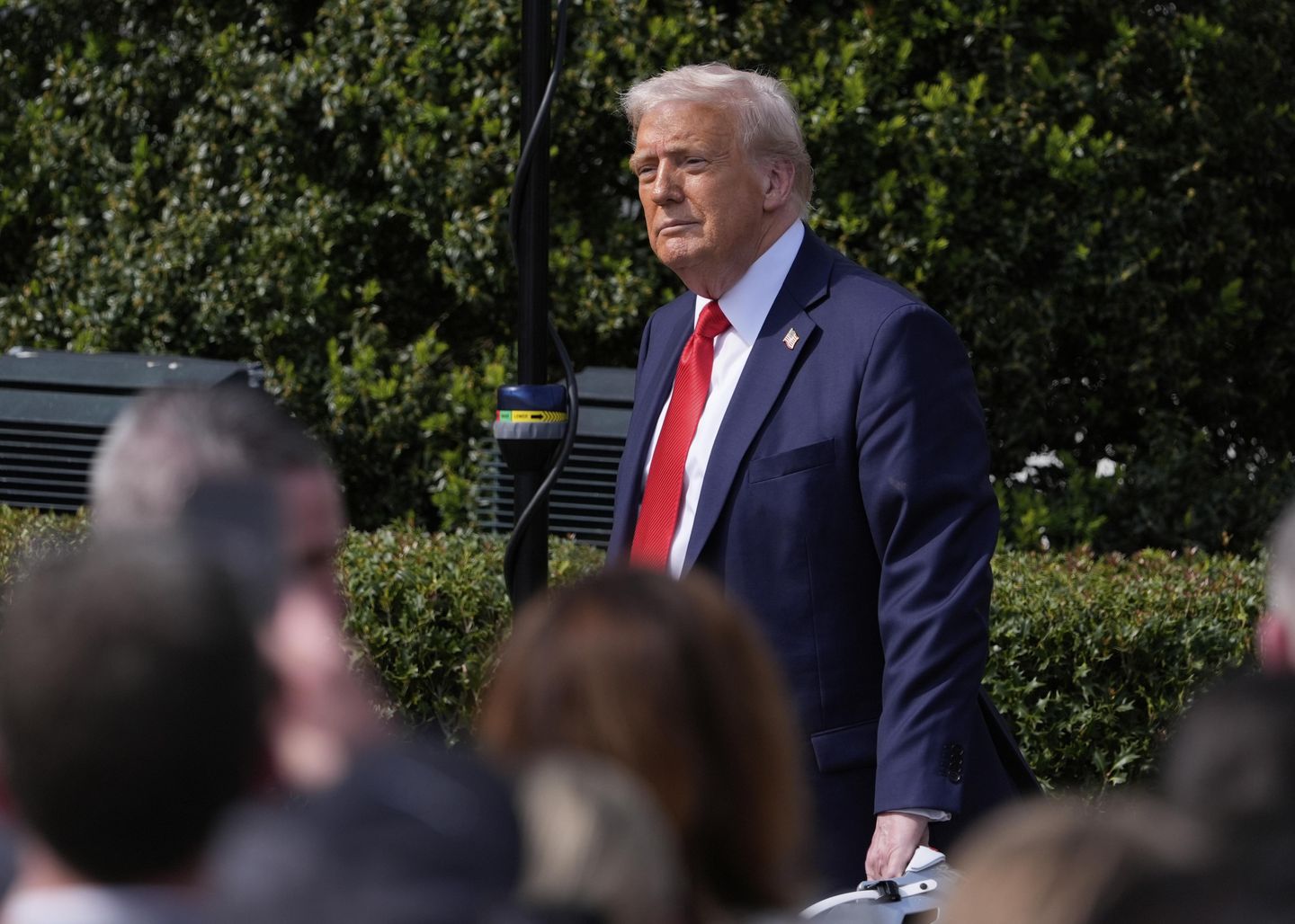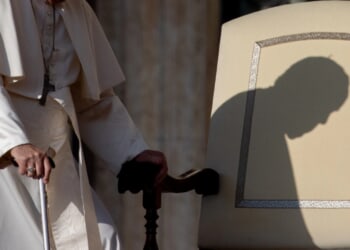
A group of small businesses is suing President Trump over his “Liberation Day” tariff plan, saying the White House usurped Congress’ power when it claimed that trade deficits with other countries amounted to an emergency under a 1977 law.
The lawsuit filed by the Liberty Justice Center in the U.S. Court of International Trade says the emergency that Mr. Trump is using to impose across-the-board tariffs is “a figment of his own imagination.”
Mr. Trump pointed to trade deficits, in which the U.S. imports far more goods from a country than it sells to that nation, as the foundation for his 10% blanket tariff and higher “reciprocal tariffs” on dozens of other nations.
“Trade deficits, which have persisted for decades without causing economic harm, are not an emergency. Nor do these trade deficits constitute an ‘unusual and extraordinary threat,’” the lawsuit says.
Mr. Trump paused high reciprocal tariffs against many nations for 90 days to allow for negotiations. But his blanket tariffs remain, alongside a 145% levy on Chinese goods and tariffs on autos and steel and aluminum.
The White House relied on the International Emergency Economic Powers Act to impose tariffs without congressional approval. The law allows presidents to issue tariffs in cases of unusual threats or emergencies.
Some lawmakers are pushing resolutions to nullify Mr. Trump’s powers in this case, and the lawsuit seeks the same from the courts.
“This court should declare the president’s unprecedented power grab illegal, enjoin the operation of the executive actions that purport to impose these tariffs under the IEEPA, and reaffirm this country’s core founding principle: there shall be no taxation without representation,” the lawsuit said.
The plaintiffs are: VOS Selections, a New York business that specializes in the importation and distribution of small-production wines, spirits and sake; FishUSA Inc., which sources most of its sportfishing tackle from abroad; Genova Pipe, a Utah business that makes ABS pipe using ABS resin from South Korea and Taiwan; MicroKits LLC, a Virginia business that assembles Asian electronics into educational electronic kits and musical instruments; and Terry Precision Cycling of Vermont, which makes women’s cycling apparel.
“Twenty years ago, we made all our apparel in the U.S. but gradually moved production overseas to sustain our business,” the cycling company said. “Bringing manufacturing back would require a long-term strategy supported by consistent government policies, investment in factories with skilled sewers, and access to raw materials that are not subject to high tariffs.”
“Never Trumpers will always oppose him, but President Trump is standing up for Main Street by putting an end to our trading partners — especially China — exploiting the U.S.,” White House principal deputy press secretary Harrison Fields said. “His plan levels the playing field for businesses and workers to address our country’s national emergency of chronic trade deficits.”
Tariffs are a tax or duty paid by importers on the goods they bring in from foreign markets.
Mr. Trump says tariffs are a great way to force companies to return to America or keep their operations in the U.S., employ American workers and create revenue to fund domestic programs.
Foreign countries don’t pay the tariffs directly to the U.S. Treasury. In many cases, U.S. companies will pay the levies, and they might pass on at least some of the cost to consumers through higher prices.
The White House has acknowledged there will be near-term disruption from the tariffs but says the long-term benefits will include U.S. jobs and a country that is not reliant on other nations for its medicines, autos, military equipment and other key goods.


![NYC Tourist Helicopter Falls into Hudson River, Siemens Executive and Family Among Those Killed [WATCH]](https://www.right2024.com/wp-content/uploads/2025/04/NYC-Tourist-Helicopter-Falls-into-Hudson-River-Siemens-Executive-and-350x250.jpg)






![Green Day’s Cringe Trump Diss Ends in Fire and Evacuation [WATCH]](https://www.right2024.com/wp-content/uploads/2025/04/Green-Days-Cringe-Trump-Diss-Ends-in-Fire-and-Evacuation-350x250.jpg)
![Red Sox Fan Makes the ‘Catch of the Day’ with Unconventional ‘Glove’ [WATCH]](https://www.right2024.com/wp-content/uploads/2025/04/Red-Sox-Fan-Makes-the-‘Catch-of-the-Day-with-350x250.jpg)






